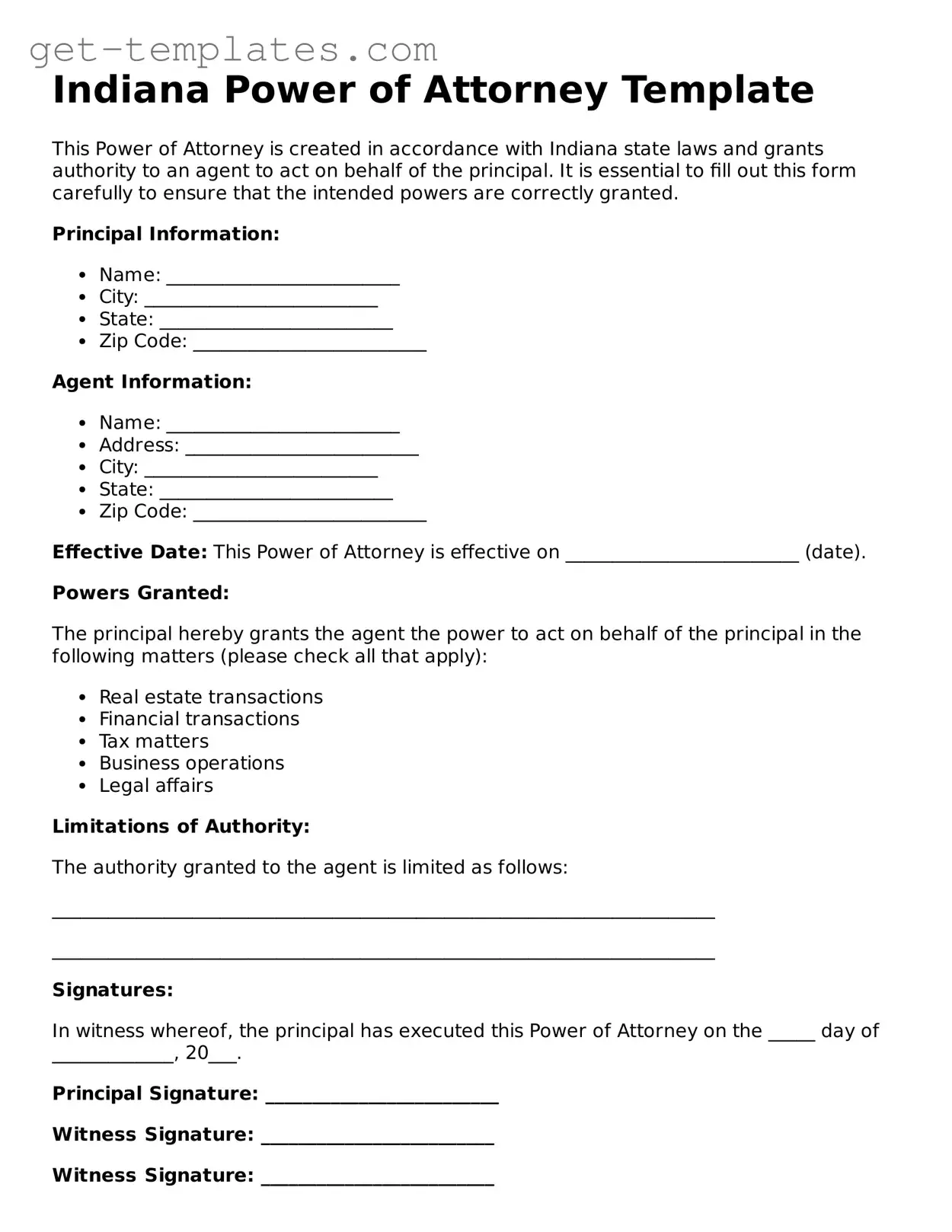Attorney-Approved Power of Attorney Document for Indiana
The Indiana Power of Attorney form is a legal document that allows one person to grant another person the authority to act on their behalf in financial or legal matters. This form is essential for ensuring that your affairs are managed according to your wishes, especially if you become unable to make decisions for yourself. Understanding its components and implications can help you make informed choices about your future.
Get Document Online

Attorney-Approved Power of Attorney Document for Indiana
Get Document Online
You’re halfway through — finish the form
Finish Power of Attorney online — edit, save, download made easy.
Get Document Online
or
⇓ PDF Form
